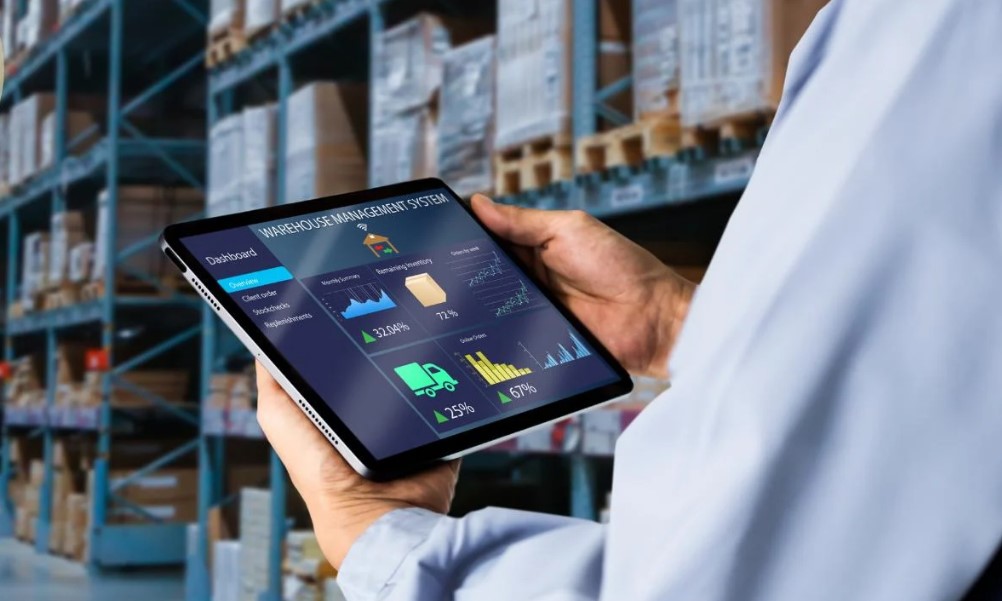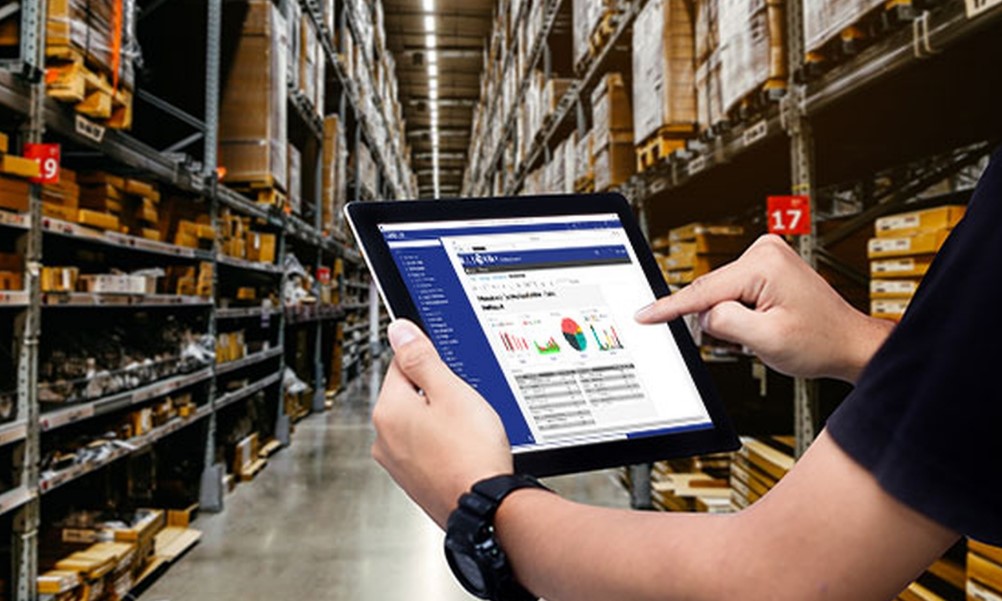Best Inventory Management Software for Business Efficiency in 2024
Managing inventory is a complex yet essential process for any business, as it directly affects profitability, customer satisfaction, and operational efficiency. Inventory management software offers a digital solution to this challenge, providing real-time tracking, automated control, and valuable insights that simplify stock management. This guide delves into the most effective inventory management solutions available in 2024, helping you select the right tool for your business. This article will cover the key benefits of using inventory management software, essential features to look for, a comparison of top products in the market, and real-world use cases. Additionally, we’ll provide links to reputable providers where you can explore and purchase each recommended software.
What is Inventory Management Software?

Inventory management software is a digital tool designed to help businesses manage and track stock levels, orders, sales, and deliveries. By automating these tasks, the software reduces human error, improves stock accuracy, and provides real-time visibility into inventory levels. It’s especially beneficial for businesses dealing with high volumes of goods, multi-location warehouses, or complex supply chains.
A robust inventory management system integrates with other business tools, such as accounting software, CRM platforms, and e-commerce channels, allowing for centralized control over various business functions. This capability allows businesses to make informed decisions about purchasing, stock replenishment, and demand forecasting.
Types of Inventory Management Software

Inventory management software can be classified into several types, each suited to different business needs, sizes, and industries. Here are four key types:
1. Inventory Tracking Software
Inventory tracking software focuses primarily on tracking stock levels, orders, sales, and deliveries in real-time. It’s ideal for small to medium-sized businesses that want to maintain accurate inventory records without the need for complex features. This software provides businesses with real-time data on stock levels, helping prevent stockouts and overstocking. Many tracking software options offer barcode scanning, which speeds up the process of managing incoming and outgoing inventory. Popular options in this category include Zoho Inventory and QuickBooks Commerce. Both provide multi-channel sales support and integrate well with e-commerce platforms, making them perfect for online retailers.
2. Warehouse Management Software (WMS)
Warehouse Management Software (WMS) is a more comprehensive solution focused on managing the entire warehouse process. It is designed for businesses that handle large volumes of inventory and need to manage multiple warehouses or complex distribution centers. WMS solutions often include features for real-time tracking, order fulfillment, space optimization, and labor management. Additionally, WMS software offers inventory tracking at the granular level, such as by bin or lot, making it perfect for industries with complex logistics needs like retail and manufacturing. Cin7 and NetSuite WMS are popular choices in this category, supporting multi-location inventory management and advanced reporting.
3. Enterprise Resource Planning (ERP) Software
ERP software includes inventory management as part of a larger suite of business functions. Beyond inventory, ERP systems integrate with finance, human resources, customer relationship management (CRM), and other core business areas. This makes ERP software ideal for medium to large enterprises seeking a centralized system for end-to-end business operations. NetSuite and SAP ERP are well-known ERP solutions that incorporate inventory management along with other business functions, offering a fully integrated approach to inventory and resource planning.
4. Order Management Software (OMS)
Order Management Software (OMS) focuses on automating the entire order process, from receiving an order to fulfilling it. While it includes some inventory management capabilities, OMS software emphasizes streamlining order processing across multiple channels. This type is best for businesses with high sales volumes or multiple sales channels, like e-commerce businesses. Salesforce Commerce Cloud and Oracle Order Management are prominent OMS solutions, providing multi-channel order tracking, integration with CRM systems, and real-time inventory updates for better customer service and streamlined operations.
Key Features of Inventory Management Software

Real-Time Inventory Tracking
Real-time tracking is a fundamental feature that allows businesses to monitor stock levels as they change. This continuous updating provides immediate insights into product availability, helping businesses avoid stockouts and overstock situations. With real-time inventory tracking, companies can make informed decisions about restocking and meet customer demands more effectively, enhancing operational efficiency and customer satisfaction.
Order and Sales Management
Order and sales management tools are essential for tracking orders from placement to fulfillment. This feature simplifies the order processing workflow, ensuring timely and accurate fulfillment. It also enables businesses to analyze sales trends and monitor customer purchasing behavior, supporting more accurate demand forecasting and streamlined inventory management.
Barcode Scanning and Automation
Barcode scanning accelerates inventory counting, minimizes errors, and updates stock levels automatically. Paired with automation capabilities, this feature reduces the need for manual data entry, streamlining processes like restocking alerts and reordering. Automation allows employees to shift focus from repetitive tasks to more strategic responsibilities, improving overall productivity.
Multi-Channel and Multi-Warehouse Support
For businesses with multiple sales channels or storage locations, multi-channel and multi-warehouse support provides centralized control over inventory. This feature ensures that stock levels are consistently monitored across various platforms and locations, reducing the risk of discrepancies and simplifying stock management. It’s particularly beneficial for companies operating both online and offline.
Demand Forecasting and Analytics
Demand forecasting and analytics tools allow businesses to anticipate future inventory needs based on historical sales and market trends. By leveraging data-driven insights, companies can make more accurate purchasing decisions, optimize stock levels, and reduce waste. This feature is invaluable for aligning inventory with demand fluctuations, improving cost efficiency.
Integrations with Other Business Tools
Integration capabilities enable inventory management software to sync with accounting, CRM, and e-commerce systems, creating a unified platform for business operations. These integrations streamline data flow between systems, reduce data silos, and enable more informed decision-making. By connecting inventory management with other core business functions, companies achieve greater efficiency and coherence across operations.
Key Benefits of Inventory Management Software
Enhanced Operational Efficiency
One of the most valuable benefits of inventory management software is the increase in operational efficiency. By automating processes that were previously manual, such as tracking incoming and outgoing goods, order fulfillment, and stock adjustments, businesses can save time and reduce the risk of human error. Real-time updates ensure that businesses always have an accurate overview of their inventory, which is crucial for smooth operations and timely order fulfillment.
Real-Time Inventory Tracking
Inventory management software provides real-time data, giving businesses accurate and up-to-date information on stock levels at all times. This functionality enables quick decisions regarding restocking, adjusting stock levels, or reallocating inventory across locations. Real-time tracking is particularly beneficial for companies with multiple sales channels or physical locations, as it ensures consistency and transparency.
Cost Control and Savings
Inventory management software helps businesses avoid costly inventory problems, such as overstocking or stockouts. By optimizing stock levels, companies reduce the need for excess inventory, which lowers storage costs and minimizes the risk of unsold goods. At the same time, it prevents stockouts that could lead to lost sales, helping businesses maintain a stable revenue stream.
Improved Customer Satisfaction
With effective inventory management, businesses can meet customer demand more reliably. By minimizing stockouts and delays, companies provide a better customer experience, leading to increased satisfaction and loyalty. Customers are more likely to return to a business that consistently delivers the products they need in a timely manner.
Top Inventory Management Software Options in 2024
Here’s an in-depth look at some of the best inventory management software available in 2024, covering features, use cases, pricing, and more.
Zoho Inventory
Website: <a href=”https://www.zoho.com/inventory/” target=”_blank”>Zoho Inventory</a>
Zoho Inventory is a popular choice for small to medium-sized businesses due to its affordability and user-friendly interface. It offers comprehensive tools to manage orders, track shipments, and control stock levels, making it ideal for growing businesses with moderate inventory needs.
- Features:
- Real-time stock tracking and management
- Integration with major e-commerce platforms like Amazon and Shopify
- Barcode scanning and batch tracking
- Order fulfillment with shipment tracking
- Automatic stock level alerts
- Use Case: Zoho Inventory is best suited for small to mid-sized businesses that sell on multiple channels and need to centralize inventory management. With its multi-channel integration, it’s particularly valuable for e-commerce stores that operate on platforms such as Amazon, eBay, and Shopify.
- Pros:
- Affordable and scalable for small businesses
- Easy integration with popular marketplaces
- User-friendly interface with intuitive navigation
- Cons:
- Limited advanced features for large enterprises or complex supply chains
- May require add-ons for additional functionality
- Price: Starting at $39 per month, with different pricing tiers available based on features and business size.
NetSuite Inventory Management
Website: <a href=”https://www.netsuite.com” target=”_blank”>NetSuite Inventory Management</a>
NetSuite is a robust ERP (Enterprise Resource Planning) solution that provides advanced inventory management capabilities for larger enterprises. Known for its extensive features and scalability, NetSuite is ideal for companies with complex inventory needs and a high volume of transactions.
- Features:
- Real-time demand planning and procurement automation
- Advanced reporting and analytics
- Multi-location inventory tracking
- Integration with other ERP modules (e.g., accounting, CRM)
- Customizable workflows and automation
- Use Case: NetSuite is perfect for larger companies that need comprehensive inventory management combined with other ERP functionalities, such as finance, CRM, and human resources. It’s especially useful for businesses with multiple warehouses or locations and a need for detailed inventory control.
- Pros:
- Highly customizable with extensive features
- Scalable for large or rapidly growing businesses
- Seamless integration with other ERP modules
- Cons:
- Higher price point, which may be prohibitive for smaller businesses
- Requires a longer learning curve due to its complexity
- Price: Custom pricing based on the specific requirements and scale of the business.
TradeGecko (QuickBooks Commerce)
Website: <a href=”https://quickbooks.intuit.com/commerce/” target=”_blank”>QuickBooks Commerce</a>
TradeGecko, now part of QuickBooks Commerce, is an inventory management software designed for small to medium-sized businesses, particularly e-commerce. It offers an integrated solution that combines inventory management with accounting, making it easy to track stock levels and financials in one place.
- Features:
- Multi-channel selling support
- Integrated accounting with QuickBooks
- Supplier management and order tracking
- Demand forecasting and stock alerts
- Use Case: TradeGecko (QuickBooks Commerce) is ideal for e-commerce businesses looking for an all-in-one solution that manages both inventory and accounting. It works well for retailers and wholesalers who want centralized control over their inventory and financials.
- Pros:
- Strong integration with QuickBooks for accounting purposes
- Suitable for multi-channel sales operations
- Ideal for businesses with a focus on e-commerce
- Cons:
- Limited customization for complex inventory needs
- May lack some advanced inventory features for larger enterprises
- Price: Starting at $39 per month with various subscription options.
Detailed Comparison of Inventory Management Software Options
Zoho Inventory vs. NetSuite Inventory Management
Use Case: Zoho Inventory is suitable for smaller businesses with multi-channel selling needs, while NetSuite is geared toward larger enterprises requiring full ERP integration.
Pros:
- Zoho Inventory: Cost-effective, beginner-friendly, and ideal for multi-channel sales.
- NetSuite: Highly customizable and scalable for enterprise needs, offering robust ERP capabilities.
Cons:
- Zoho Inventory: Limited features for large-scale businesses.
- NetSuite: Expensive and complex, making it less accessible for smaller companies.
QuickBooks Commerce vs. Cin7
Use Case: QuickBooks Commerce works well for small e-commerce businesses, while Cin7 is designed for companies requiring complex inventory solutions across multiple warehouses.
Pros:
- QuickBooks Commerce: Easy integration with accounting and suitable for e-commerce.
- Cin7: Supports multi-warehouse needs and offers advanced logistics integration.
Cons:
- QuickBooks Commerce: Limited support for complex inventory systems.
- Cin7: Higher learning curve and custom pricing, which can be expensive.
How to Buy Inventory Management Software
Purchasing inventory management software involves evaluating the needs of your business, such as required features, integration needs, and budget. Most software providers offer free trials or demo versions, allowing you to test the platform before committing to a subscription.
- Where to Buy: Software can be purchased directly from the providers’ official websites. Some platforms offer affiliate programs or referral links if you’re considering an industry-specific solution.
- How to Buy: Begin with a free trial if available. Once you’re ready to proceed, select a subscription plan that aligns with your business’s needs. Many providers also offer onboarding support or training sessions.
Use Cases: Solving Real-World Business Problems
Streamlining Multi-Channel Sales with Zoho Inventory
Zoho Inventory enables businesses to manage multiple sales channels from a single platform, reducing the complexity of tracking stock across various e-commerce sites.
Optimizing Warehouse Management with Cin7
Cin7’s multi-warehouse functionality helps businesses with large inventories and complex storage needs. By offering real-time updates and comprehensive tracking, it ensures efficient stock management across locations.
FAQs
1. What are the key features to look for in inventory management software?
Key features include real-time tracking, order management, multi-location support, barcode scanning, and integration with e-commerce platforms.
2. Can small businesses benefit from inventory management software?
Yes, small businesses benefit from inventory management software by improving stock control, reducing costs, and enhancing customer satisfaction through timely order fulfillment.
3. How much does inventory management software typically cost?
Prices range from $39 per month for basic solutions to custom pricing for advanced, enterprise-level systems.